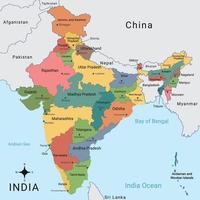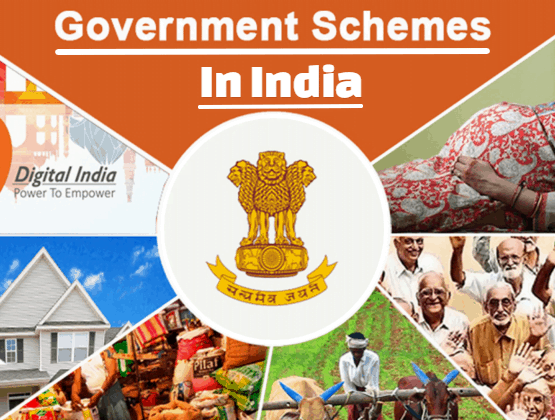Gayani Zail Singh
| Full Name | Gayani Zail Singh |
| Date of Birth | May 18, 1916 |
| Place of Birth | Punjab, British India |
| Date of Death | December 25, 1994 |
| Spouse | Lakshmi Zail Singh |
| Children | 3 children (including a son) |
| Nationality | Indian |

Introduction:
Gayani Zail Singh was one of the most respected and significant political figures in post-independence India. Serving as the 8th President of India from 1982 to 1987, his tenure was a pivotal moment in Indian political history. Known for his deep commitment to national unity, secularism, and democratic values, he became the first person from Punjab to hold the office of President. His legacy extends beyond his political career, as he worked to further the development of science, technology, and cultural preservation in India.
Childhood & Early Life:
Gayani Zail Singh was born into a modest family in Sandhwan, a village in the erstwhile Punjab province under British rule. His parents were simple folk, and he was brought up with strong moral values and a respect for education. During his early years, Gayani was highly focused on his studies, showing a keen interest in literature, history, and politics. His childhood was marked by the socio-political turbulence of the pre-independence era, which greatly influenced his later commitment to public service.
He was also deeply affected by the partition of India in 1947, which left a lasting impact on his views about national unity and the importance of keeping the peace among diverse communities. He studied at a local school and later attended Government College in Hoshiarpur, where he became involved in student politics, an experience that set the stage for his eventual political career.
Political Career:
Gayani Zail Singh’s political career began in the late 1940s when he joined the Indian National Congress (INC), which was the primary political force in post-independence India. His early political involvement was heavily influenced by his association with the INC’s leadership and his desire to help shape India’s future. He initially served in local-level political positions before becoming a Member of the Legislative Assembly (MLA) in Punjab.
He made significant strides in his political career when he became the Chief Minister of Punjab in 1972, serving until 1977. His tenure as CM was marked by his efforts to improve Punjab’s agricultural economy, uplift rural communities, and strengthen the state’s infrastructure. He was also a strong proponent of education and modernization.
In 1980, Gayani Zail Singh was appointed Union Minister for Home Affairs under Prime Minister Indira Gandhi. This period of his career was critical, as it saw him involved in some of the most consequential decisions in India’s history, including the aftermath of Operation Blue Star in 1984, which was an operation aimed at removing militant Sikh leader Jarnail Singh Bhindranwale from the Golden Temple in Amritsar. This operation resulted in significant tension between the Sikh community and the Indian government.
Later, in 1982, Zail Singh was elected President of India after the death of the then-President, Giani Gurmukh Singh. He became a key figure during a turbulent time for India, as his presidency coincided with a series of sensitive and difficult events, including the Sikh riots of 1984 and the aftermath of Indira Gandhi’s assassination.
Major Works & Presidency:
As President of India, Gayani Zail Singh’s role was largely ceremonial, as the Indian Constitution gives executive power to the Prime Minister. However, he was a key figure in guiding the country through a series of national crises. Some of his major contributions include:
- Securing India’s Democratic Institutions: Despite the political challenges of the 1980s, particularly with the turbulence in Punjab, Zail Singh remained committed to upholding India’s democratic and secular ethos.
- Handling the Aftermath of Indira Gandhi’s Assassination: Zail Singh assumed the role of President just after the tragic assassination of Prime Minister Indira Gandhi in 1984. His calm and authoritative leadership during this period helped maintain stability in the country.
- Support for Science & Technology: Under his presidency, India’s technological advancements, particularly in space research and defense, were supported. Zail Singh was a proponent of Indian scientific progress, and his administration helped promote research and development in the country.
- Champion of National Unity: Zail Singh worked hard to foster national unity, particularly during periods of ethnic and religious unrest. His presidency was seen as one where India focused on strengthening its democratic values, even in the face of increasing challenges like the rise of Sikh militancy in Punjab.
Awards & Achievements:
- Padma Vibhushan: Gayani Zail Singh was awarded the Padma Vibhushan in 1987, the second-highest civilian award in India, recognizing his exceptional contributions to public life and his service to the nation.
- Role in International Diplomacy: He played an important role in fostering international relations during his presidency, especially in terms of India’s relationship with neighboring countries and its status on the global stage.
- Advocacy for Secularism: His presidency was also marked by his advocacy for a secular India, which respected all religions and cultures, a stance that was essential during a time when tensions between communities were high.
Personal Life & Legacy:
Gayani Zail Singh was married to Lakshmi Zail Singh, and together they had three children. Zail Singh led a relatively simple and austere life, focused on his duties as a public servant. He was known for his humility, integrity, and personal discipline.
In terms of his legacy, Zail Singh is often remembered as a leader who played an instrumental role in steering India through one of its most challenging decades. His work in promoting national unity, secularism, and democratic values continues to be highly regarded.
- Legacy in Punjab: Zail Singh is remembered in Punjab, not just as a political leader, but as a person who truly understood the challenges of the state and worked toward overcoming them.
- Continued Respect for Secularism: His insistence on the importance of a secular India, where people of all faiths were equal, has remained an important part of his political legacy.
Trivia:
- Language Skills: Gayani Zail Singh was fluent in multiple languages, including Punjabi and Hindi, and was known for his eloquent speeches in both languages.
- Affection for Literature: Zail Singh had a deep love for literature, particularly works related to Indian culture and history. He often engaged in discussions on philosophy and history with close associates.
- Interest in Sports: Despite his busy political career, he was also known to have an interest in sports, particularly cricket.
- Humility: Despite holding high office, Zail Singh was a man of simple tastes. He avoided the opulence that typically accompanies political power and was widely regarded as modest and approachable.
- Historical Firsts: He was the first Sikh to serve as the President of India, which was seen as a significant milestone for India’s minority communities.
This expanded biography of Gayani Zail Singh highlights his enduring influence in Indian politics and his contributions to the country during a tumultuous era. His leadership, particularly as President, continues to inspire those who value integrity, democracy, and national unity.
Key Terms:
- 8th President of India ,
- achievements ,
- awards ,
- democratic values ,
- early life ,
- Gayani Zail Singh ,
- India’s technological progress ,
- Indian Diplomacy ,
- Indian National Congress ,
- Indian Politics ,
- Indira Gandhi ,
- legacy ,
- major works ,
- national unity ,
- Operation Blue Star ,
- Padma Vibhushan ,
- personal life ,
- political career ,
- Punjab ,
- Secularism ,
- Sikh riots
Disclaimer: The information provided here has been compiled from various sources to the best of our knowledge. While every effort has been made to ensure the accuracy of the details, there may be occasional errors or omissions. If you find any discrepancies or incorrect information, kindly inform us so we can make the necessary corrections. Thank you for your understanding and cooperation.





